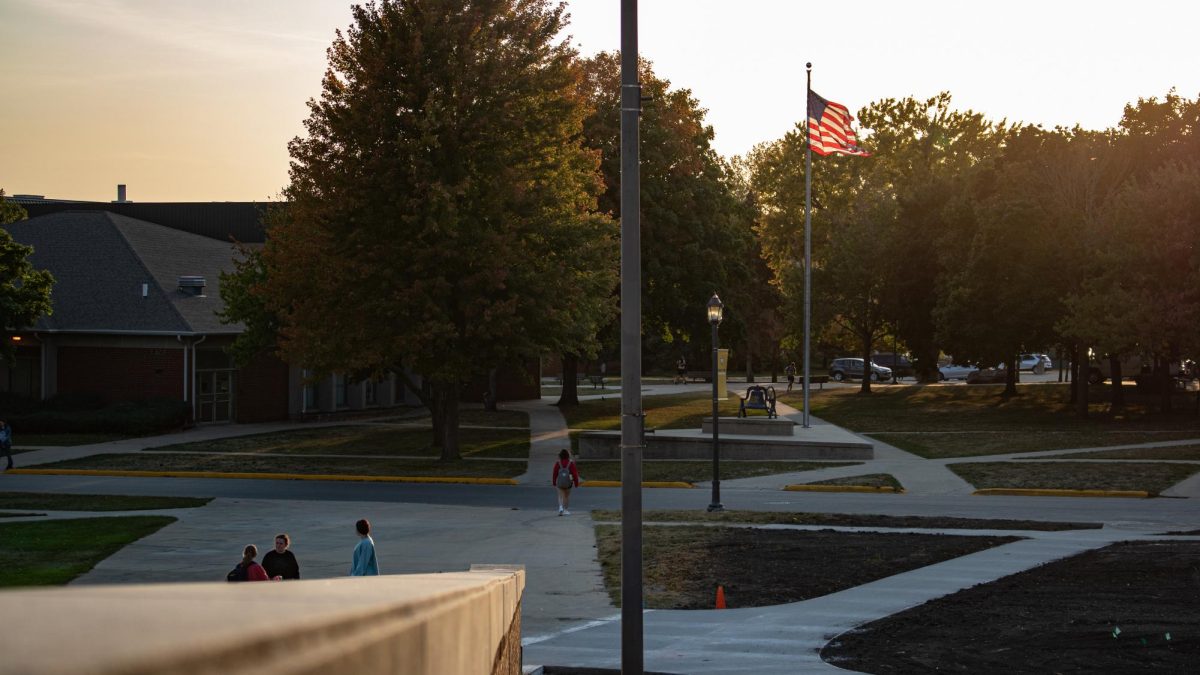Olivia Wieseler | Staff Writer
With the election just around the corner, many social, political, and economical issues are surfacing and being discussed. One issue that keeps popping up is free tuition. Getting a post-secondary education is becoming more and more expensive each year. It needs to be addressed, and free tuition for public colleges and universities seems to be the answer. As a student, I know free tuition would take quite a bit of stress off my shoulders. However, as with every great idea, there are always consequences. Unfortunately, the consequences of free tuition are far too great to be overlooked. Free college tuition would put stress on our economy, create more financial illiteracy among students, and decrease the value of a college diploma.
The first consequence is probably the most commonly debated one. Just because college tuition is free for the students, doesn’t mean that there is no money involved. There are still costs to attend the institution. It just means someone else is paying for it. That someone else is the government. And where does the government get a lot of its money? Taxpayers. Federal and state taxes would skyrocket, needing more money to fund students’ education. Then, with the large taxes that taxpayers would need to pay, they would have less money to spend on or invest in other things, causing our whole economy to suffer.
Now, there is an argument to this. In Carl Hiaasen’s article, “Free Tuition? Bernie What Are You Smoking?”, Hiaasen tells us about former presidential candidate, Bernie Sanders’ idea of the “Robin Hood Tax,” which would be a tax on Wall Street investment houses and hedge funds. Sanders’ website states that this tax would raise “$47 billion of the estimated $70 billion it now costs students to attend public colleges and universities.” The remainder of the sum would be paid by the individual states. Sounds like a good plan, right? But if this tax would pass and public colleges and universities started offering free tuition, the amount of students attending these institutions would increase dramatically due to the attractive free tuition. With so many more students, the cost to attend these institutions would rise far higher than the original estimate of $70 billion. Now where would all this extra money come from? Same answer as before: taxpayers.
Nevertheless, maybe it would be worth paying more taxes to give more people an opportunity for a higher education. Maybe, it’s worth helping people get smarter for the real world. But would they get smarter? Taking away a student’s financial responsibility would lead him or her to be financially illiterate. Not needing to learn how to balance and budget large sums of money, many students would not be prepared to do so once they entered their career in the real world. That was one of the main reasons I was hoping to get as many scholarships for college as possible—not exactly because it would help pay for my education (though I cared about that too) but because it would be money that I wouldn’t have to worry about how I got it or used it. However, having to analyze my financial situation and take measures needed to satisfy my monetary obligations, I already have learned many things that will help me financially in the future that I wouldn’t have known if I never had to worry about it. But this is what free tuition would do to students. They wouldn’t have to be financially concerned about their education, which would cause them to not know how to be financially responsible in the future. College isn’t just a place to achieve higher academics; it’s a transitioning phase from dependent child to independent adult. We take one of those transitioning factors away, we jeopardize students’ ability to become responsible and independent adults.
Speaking of responsibility, how many of us acted responsible in high school? It’s okay to be honest. For many people looking back at it, high school is a time of immaturity and lack of appreciation for their education. And yet, Bernie Sanders himself said, “A college degree is the new high school diploma.” How right he would be if colleges and universities began offering free tuition. Without the pressure of paying for college, students would appreciate their education a lot less; they would take it for granted just as they did in high school. This could cause a higher rate of college drop-outs. Not only that, but the many people who do graduate with a degree would end up under-employed, no matter their qualifications. How? If so many more people get an education, the value of the degree would go down in the same way as the value of an item would go down the more available it is. With the value of their education decreased, many people would end up going to college only to get a job they could have gotten without wasting their time and effort on gaining credentials they didn’t need.
With all of this being said, it might put a little bit of a damper on your college aspirations and expectations. I don’t mean to do that. Like I said earlier, college is a great tool. Not only does it allow people to get a more concentrated education but it also aids in the transition from dependent child to independent adult. College is a great and important factor of our society. It just shouldn’t be free; you should have to work for it.









